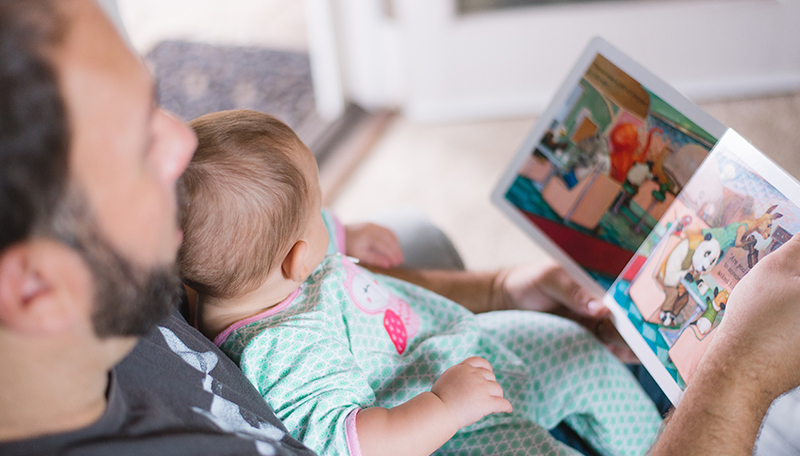Search
Showing results for "Professor"

News & Events
Meaningful moments build young brainsReading to your child is one of the easiest, most enjoyable activities you can do as a parent or caregiver.

News & Events
Embrace Co-Director attends ABC Big Day of BooksEmbrace Co-Director Professor Helen Milroy AM spoke at the Big Day of Books event held at the ABC Radio studio in Perth.
Research
“I Don’t Get to Play With My Mum Anymore”: Experiences of Siblings Aged 8–12 of Children With Cancer: A Qualitative StudySiblings of children with cancer have been shown to experience disruption in multiple domains including family, school, and friendships. Existing literature on siblings' experiences focuses on older children or on a broad range of ages.
Research
Population-level 5-year event-free survival for children with cancer in AustraliaEvent-free survival considers other adverse events in addition to mortality. It therefore provides a more complete understanding of the effectiveness and consequences of treatment than standard survival measures, but is rarely reported at the population level for childhood cancer.
Research
LIFECYCLE - Early Life Stressors and LifeCycle HealthLIFECYCLE is a significant and visionary project to establish an integrated set of long-term world-wide cohorts and clinical trials, which can be investigated and compared across the full life of cohort participants.
Research
Management and outcomes of children hospitalised with COVID-19 including incidental and nosocomial infections in Australia 2020–2023: A national surveillance studyManagement and outcomes of children hospitalised with acute SARS-CoV-2 infection may differ throughout the pandemic or with admission type (clinical COVID-19, incidental COVID-19 or nosocomial infection).
Research
Value profile for Malaria vaccines and monoclonal antibodies1Malaria remains a leading cause of morbidity and mortality and is responsible for over 0.5 million annual deaths globally. During the first two decades of this century, scale-up of a range of tools was associated with significant reductions in malaria mortality in the primary risk group, young African children.
Research
Rethinking a hybrid malaria chemoprevention delivery strategy for children in sub-perennial settings: a modelling study integrating age- and seasonally-targeted deliveryThe World Health Organization recommends perennial malaria chemoprevention (PMC), generally using sulfadoxine-pyrimethamine (SP) to children at high risk of severe Plasmodium falciparum malaria. Currently, PMC is given up to age two in perennial transmission settings. However, no recommendation exists for perennial settings with seasonal variation in transmission intensity, recently categorized as 'sub-perennial'.
Research
Impact of Parent-Reported Antibiotic Allergies on Pediatric Antimicrobial Stewardship ProgramsAntimicrobial stewardship (AMS) is crucial for optimizing antimicrobial use and restraining emergence of antimicrobial resistance. The overall increase in reported antibiotic allergies in children can pose a significant barrier to AMS, but its impact on clinical AMS care in children has not been addressed.
Research
Neurocognitive Outcomes in Young Adults With Early-Onset Type 1 DiabetesThe aim of this study was to reexamine the neurocognitive function of a cohort of young adults with early-onset type 1 diabetes and compare their cognitive...
